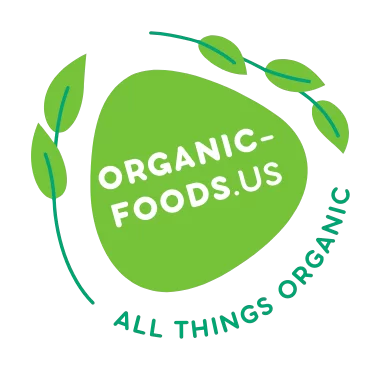Exploring Organic Foods for Boosting Iron Absorption
Iron is an essential mineral that plays a vital role in our bodies, from oxygen transport to energy production. Yet, many of us struggle with iron deficiency, which can lead to fatigue, weakness, and even more severe health issues. While iron supplements are an option, integrating organic foods into your diet can naturally enhance iron absorption. Let’s explore the organic foods that can help boost your iron levels and keep you feeling your best.
The Importance of Iron in Our Diet
Iron is crucial for the formation of hemoglobin, a protein in red blood cells that carries oxygen from our lungs to the rest of our body. It’s also essential for myoglobin, which provides oxygen to muscles, and for various enzymes involved in energy production and immune function. Without adequate iron, our bodies can’t function optimally, leading to symptoms like tiredness, shortness of breath, and pale skin.
There are two types of dietary iron: heme and non-heme. Heme iron, found in animal products, is more easily absorbed by the body. Non-heme iron, found in plant-based foods, is less readily absorbed but can be enhanced with the right dietary choices. This is where organic foods come into play, offering a natural way to boost iron absorption.
Organic Foods That Enhance Iron Absorption
When it comes to boosting iron absorption, certain organic foods can make a significant difference. Here are some of the top organic foods you should consider adding to your diet:
Vitamin C-Rich Foods
Vitamin C is a powerful enhancer of non-heme iron absorption. Organic fruits and vegetables high in vitamin C can significantly improve how much iron your body absorbs from plant-based sources. Some excellent organic options include:
- Oranges: A classic source of vitamin C, organic oranges can be eaten fresh or juiced to boost iron absorption.
- Kiwi: This tangy fruit is not only high in vitamin C but also packed with other nutrients that support overall health.
- Bell Peppers: Whether red, yellow, or green, organic bell peppers are a fantastic source of vitamin C and can be added to a variety of dishes.
By pairing these vitamin C-rich foods with iron-rich plant foods, you can maximize your iron absorption. For example, a salad with spinach (rich in iron) and slices of organic bell peppers can be a delicious and effective way to boost your iron levels.
Organic Meats and Seafood
While plant-based foods are essential, organic meats and seafood are excellent sources of heme iron, which is more easily absorbed by the body. Opting for organic options ensures you’re getting high-quality, nutrient-dense foods without harmful additives. Some top choices include:
- Organic Beef: Lean cuts of organic beef are not only rich in heme iron but also provide other essential nutrients like zinc and B vitamins.
- Organic Chicken: A versatile protein source, organic chicken can be prepared in countless ways to suit your taste and dietary needs.
- Organic Salmon: Rich in heme iron and omega-3 fatty acids, organic salmon is a heart-healthy choice that supports iron absorption.
Incorporating these organic meats and seafood into your diet can help ensure you’re getting enough heme iron, which is particularly beneficial if you’re at risk of iron deficiency.
Organic Legumes and Grains
Legumes and grains are excellent sources of non-heme iron, and choosing organic options can enhance their nutritional value. Some organic legumes and grains to consider include:
- Lentils: These versatile legumes are not only high in iron but also rich in fiber and protein, making them a staple in many diets.
- Quinoa: A complete protein source, organic quinoa is also high in iron and can be used in a variety of dishes, from salads to side dishes.
- Chickpeas: Whether in hummus or a hearty stew, organic chickpeas are a delicious way to boost your iron intake.
While these foods are rich in iron, their absorption can be enhanced by pairing them with vitamin C-rich foods. For example, a bowl of organic lentil soup with a side of sliced organic oranges can be a powerful combination for boosting iron absorption.
Strategies for Maximizing Iron Absorption
Beyond choosing the right organic foods, there are several strategies you can use to maximize iron absorption:
Avoid Iron Inhibitors
Certain foods and beverages can inhibit iron absorption, so it’s important to be mindful of what you consume alongside your iron-rich meals. Some common iron inhibitors include:
- Tea and Coffee: These beverages contain tannins, which can bind to iron and reduce its absorption. Try to avoid drinking tea or coffee with your meals.
- Calcium-Rich Foods: While calcium is essential for bone health, it can interfere with iron absorption. Consider spacing out your intake of calcium-rich foods and iron-rich foods.
- Phytates: Found in whole grains and legumes, phytates can bind to iron and reduce its absorption. Soaking, sprouting, or fermenting these foods can help reduce phytate levels and improve iron absorption.
Cooking Techniques
The way you prepare your food can also impact iron absorption. Cooking in cast iron cookware can increase the iron content of your meals, as some of the iron from the cookware leaches into the food. Additionally, cooking acidic foods like tomatoes in cast iron can enhance this effect.
Another technique is to cook your vegetables lightly, as overcooking can reduce their vitamin C content, which is essential for iron absorption. Steaming or sautéing your organic vegetables can help preserve their nutrients and enhance iron absorption.
Meal Planning
Planning your meals to include a balance of iron-rich foods and iron absorption enhancers can make a significant difference. Here’s a simple meal plan to help you boost your iron absorption:
By following this meal plan, you can ensure you’re getting a good balance of iron-rich foods and foods that enhance iron absorption, helping you maintain optimal iron levels.
The Role of Organic Foods in Iron Absorption
Choosing organic foods can have a significant impact on your iron absorption. Organic foods are grown without synthetic pesticides, fertilizers, or genetically modified organisms (GMOs), which can affect the nutrient content and quality of the food. Studies have shown that organic produce can have higher levels of certain nutrients, including vitamin C, which is crucial for iron absorption.
Moreover, organic farming practices promote soil health, which can lead to more nutrient-dense crops. This means that organic foods may provide more bioavailable iron and other essential nutrients, making them a better choice for boosting iron absorption.
According to a study by the Organic Center, organic produce can have up to 25% higher levels of certain nutrients compared to conventionally grown produce. This can make a significant difference in your overall nutrient intake and iron absorption.
Conclusion
Boosting iron absorption through organic foods is a natural and effective way to maintain optimal iron levels and support your overall health. By incorporating vitamin C-rich foods, organic meats and seafood, and organic legumes and grains into your diet, you can enhance your body’s ability to absorb iron. Additionally, being mindful of iron inhibitors and using the right cooking techniques can further improve your iron absorption.
Remember, the key to maximizing iron absorption is a balanced and varied diet that includes a range of nutrient-dense organic foods. By making these simple changes to your diet, you can enjoy the benefits of improved iron levels and better overall health. So, next time you’re planning your meals, consider the power of organic foods in boosting your iron absorption and keeping you feeling your best.
As you embark on your journey to better iron absorption, keep in mind that consistency is key. Regularly incorporating these organic foods into your diet can make a significant difference over time. And if you’re ever in doubt, consulting with a healthcare professional or a registered dietitian can provide personalized guidance to meet your specific needs.
So, why wait? Start exploring the world of organic foods today and take a step towards better iron absorption and a healthier you. Your body will thank you for it!

